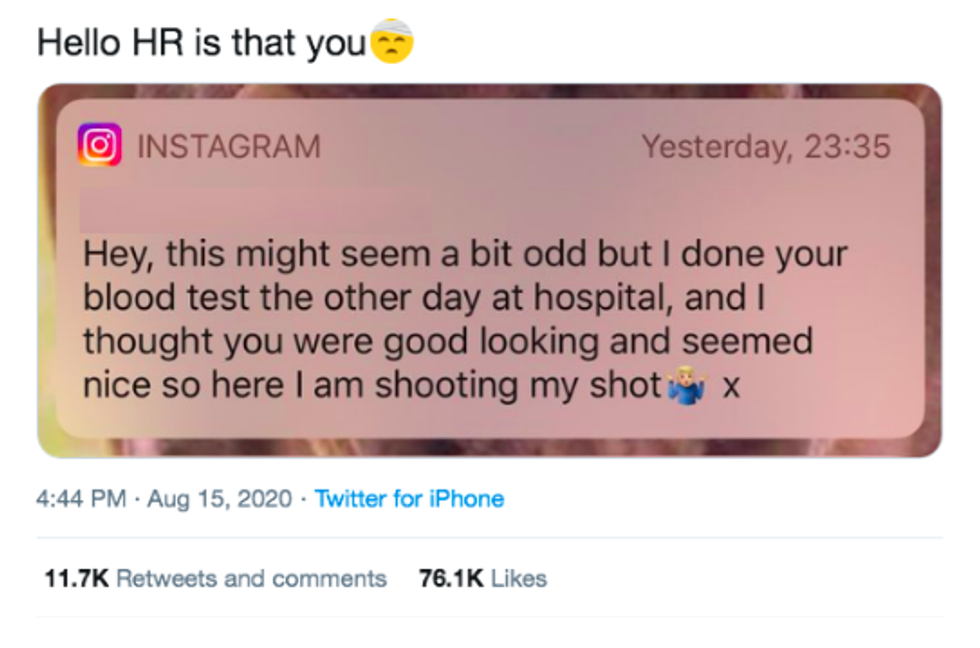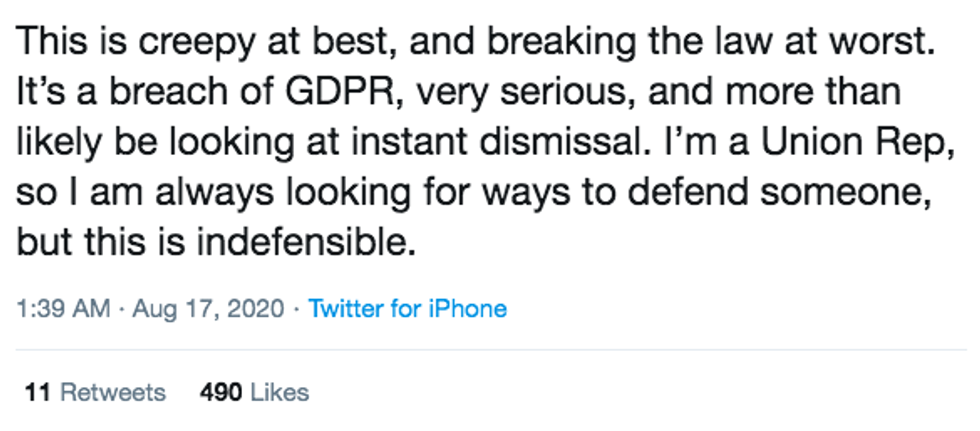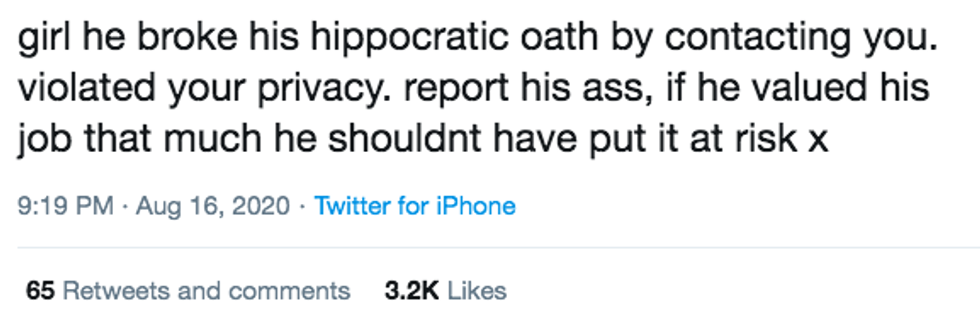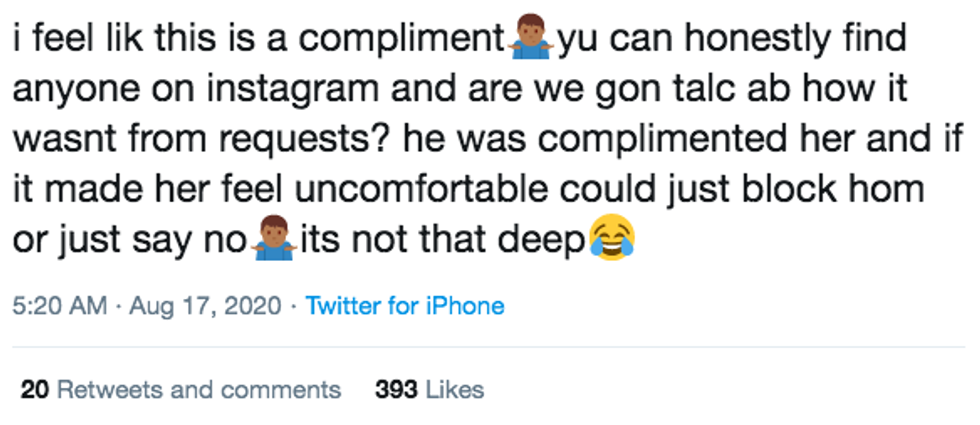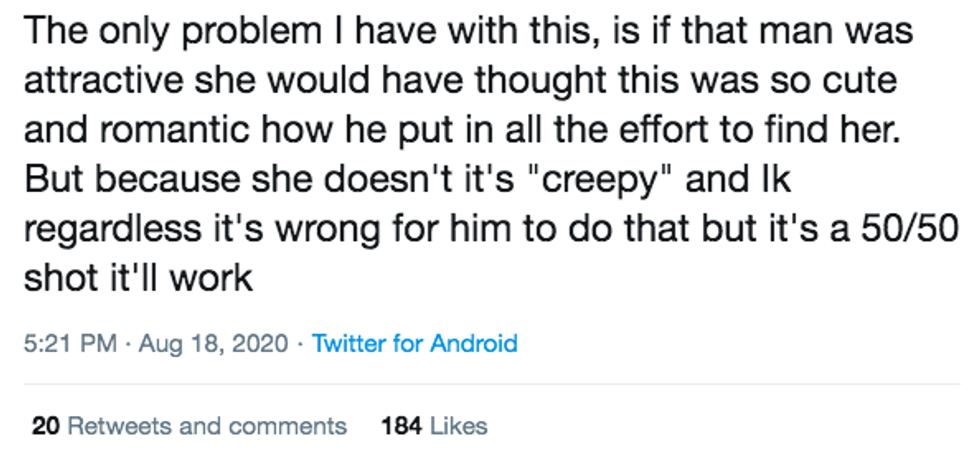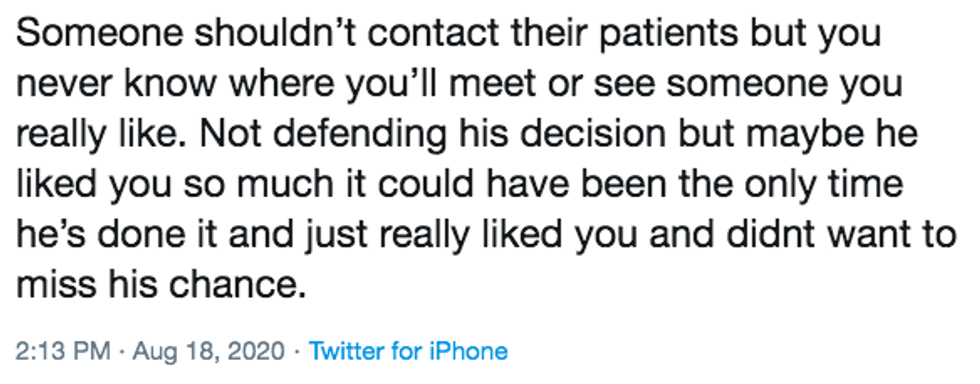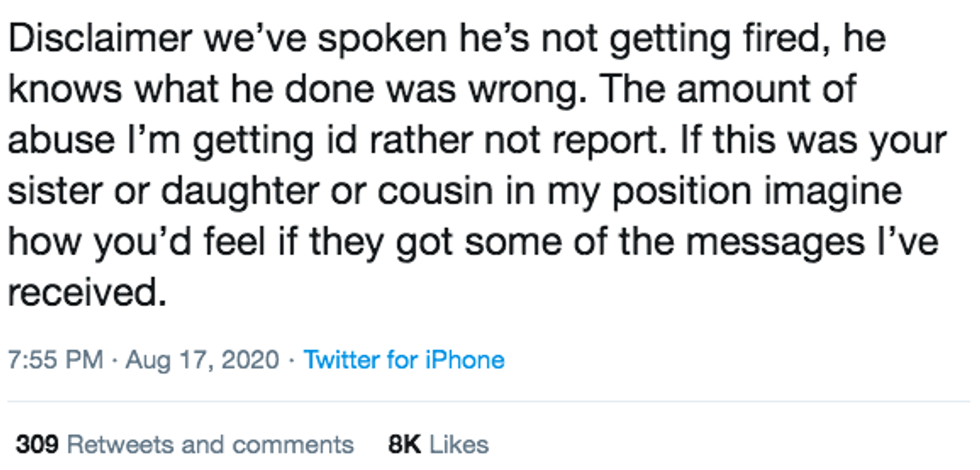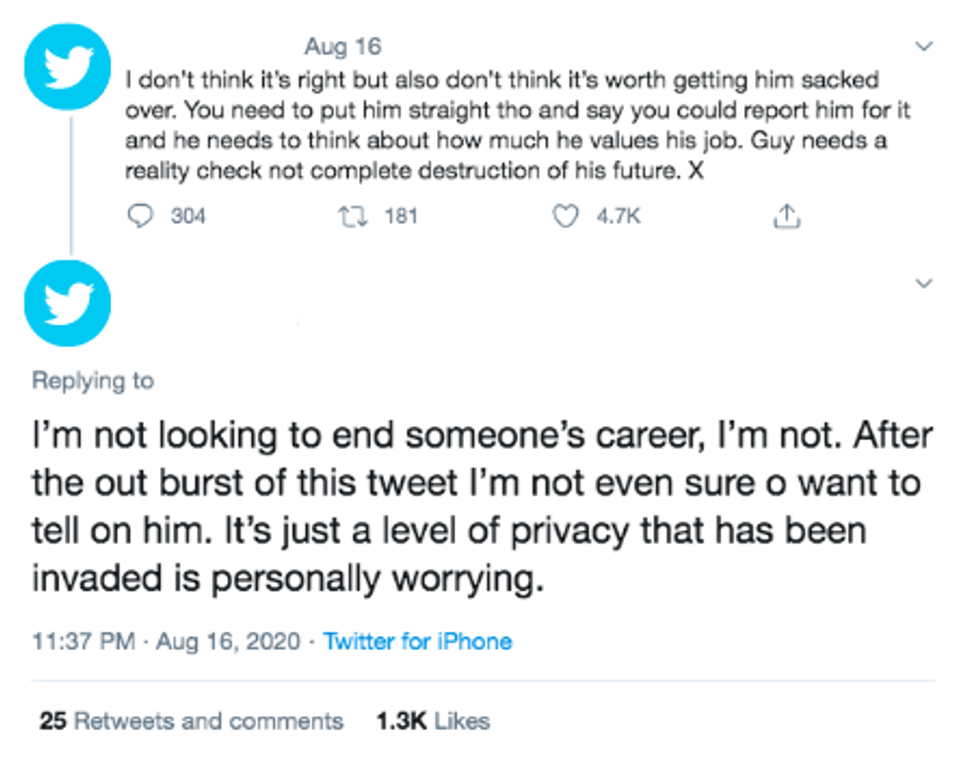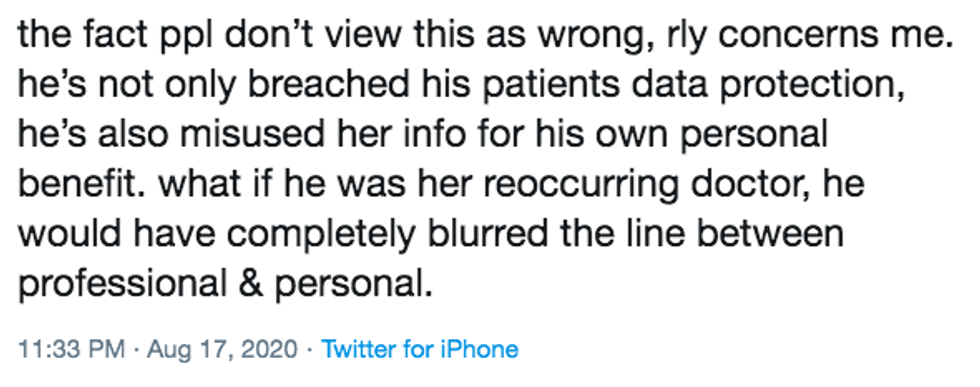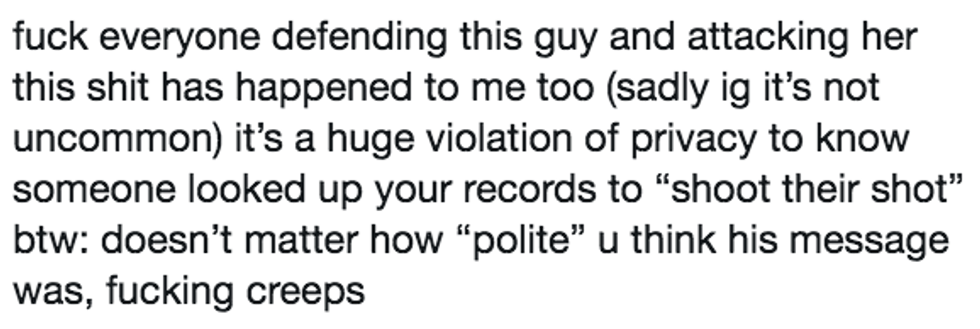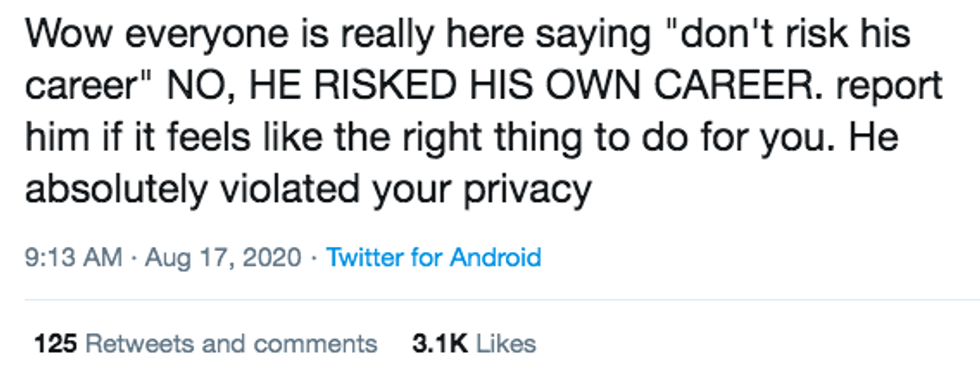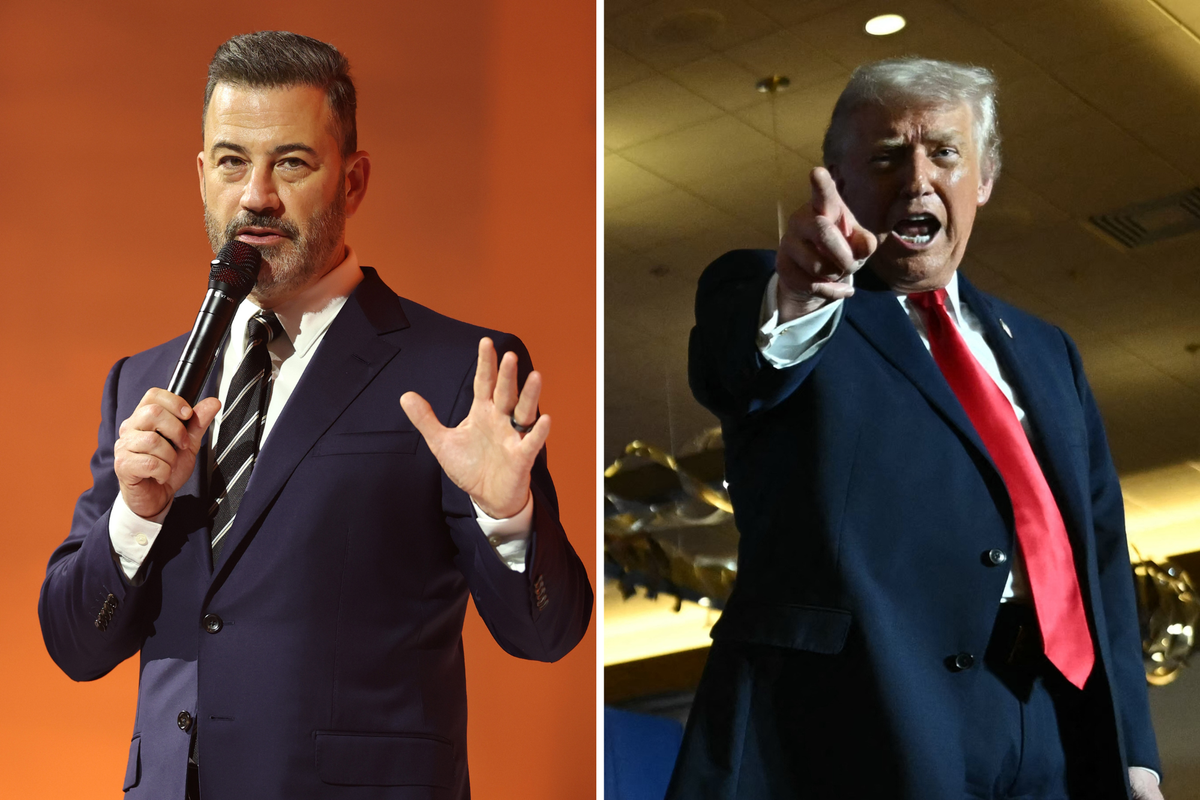
A woman sparked a conversation about harassment by sharing an Instagram message she received from a man who performed a blood test on her.
The young women posted a screenshot of the message to Twitter.
We've decided to keep her anonymous because the internet can be a hostile place to young women and no-one should be receiving hateful messages, particularly for calling out inappropriate behaviour.
Many people sympathised with the young women that the circumstances in which the message were sent were inappropriate.
But some people accused her of trying to "destroy" the unnamed medic's career which seems... really unfair.
Comments like these helped to dissuade the young woman from reporting him.
When she updated her followers on the story, she reported getting "more grief than Katie Hopkins" for sharing the DM, which is deeply disturbing.
So was the DM actually sent illegally?
Without knowing how the medic found the young woman's Instagram, it's difficult to say for sure whether or not he broke the law by messaging her. It is illegal for a medical professional to access someone's medical records without a valid reason, but it's also possible that he just remembered her name and typed it into Instagram.
It's similarly impossible to say whether or not he broke the Hippocratic Oath, as some people alleged. The Hippocratic Oath is taken by some medical students as they train to become physicians and states "I will respect the privacy of my patients" – but without knowing this particular medic's position, it's hard to say whether he will have taken it.
Inappropriate behaviour doesn't have to be illegal to be unethical.
Most work places have their own code of conduct and Human Resources department for this very reason.
Casually messaging a patient, whose personal data you may have access to, is very unprofessional and inappropriate. And victim-blaming for speaking out, or accusing them of "attention-seeking" isn't okay, either.
The abusive replies and messages the young woman says she received after posting the screenshot are symptomatic of a wider issue when it comes to people speaking out about their experiences of harassment. Despite the fact the young woman didn't so much as expose the full name of the man who messaged her, some people were more concerned about his career and reputation than they were about her safety and wellbeing.
This happens regardless of whether people are reporting minor or major infractions. Just look at the backlash some of the people who spoke out during the Me Too movement received.
When will we stop scrutinising the people who speak up about harassment and inappropriate behaviour more than we do the actual perpetrators?
